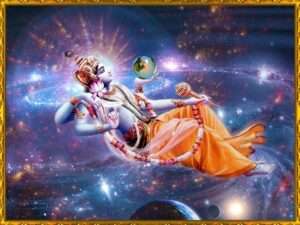 On Knowledge and the Principle of Authority
On Knowledge and the Principle of Authority
Knowledge
Knowledge (vidya) is one of the constituent elements of the person, understood as a spiritual entity, more obvious to those who are aware of it.
In the morning we wake up, open our eyes and immediately start looking around. We go to the bathroom and look at the mirror. Our mind, in a fraction of a second, makes the point, sums up what happened in the past and what it has to do. The senses reactivate. The sense of hearing, besides, never goes out, not even during sleep. If we hear a noise we wake up.
In other words, we have the natural tendency of wanting to know.
In sanskrit our personality is called cit-maya (or cin-maya), namely “naturally made of knowledge”.
We are souls made of spiritual elements and certainly not of matter.
Although the wrapping of material elements causes a limitation on the exercise of the cognitive function, this spiritual characteristic is manifested even at all times of our lives. So we look, taste, hear, touch and smell. Through the five senses we accumulate a great deal of knowledge of the outside world and of our interaction with it.
The five senses are the eyes, ears, nose, tongue and skin.
The five active senses are the voice, the legs, the hands, the anus and the genitals.
The five objects of the senses are the smell, the taste, the shape, the touch and the sound.
It is thanks to these fifteen elements that we organize our body of knowledge.
But we need more.
To know what color our shirt is our eyes are enough. To know the smell a flower, our nose is enough. But there are things for the perception of which we need to have higher senses.
For example, if we want to know what the formula is for a better life, we need intelligence, experience, and other higher elements of knowledge. If I go to another nation, it’s good to let me know what the laws governing it are because I could commit a crime without even knowing it. So if I want a happy life, it’s good to know which are the laws governing the world I live in.
I have to know if there is a God (because if He exists He created this world and has organized it), who I really am (because if I am eternal I do not have to waste my life for illusory and temporary things), what products of this world can I use and what not, and so on. Failure to answer to these questions leads us to commit crimes against God and against nature and to suffer the consequences (karma). And all this without even knowing that we are committing crimes.
In the end, knowledge (cit) is a fundamental function for both everyday life (what we call material life) and for the most profound questions (what we call “spiritual life”).
This is a section of the book “Brilliant As the Sun”(English).
To buy the complete book, click here



Leave a Reply